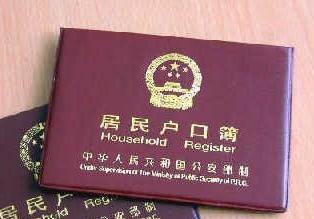

 |
BEIJING, Dec. 12 -- Migrants to Chinese cities will be able to apply for residence permits giving them access to local public services from Jan. 1, the government announced on Saturday, in a major shakeup of the "hukou" residency system.
In China, services like healthcare and schooling are generally only available to citizens in the place where they are seen as being permanently resident. In most cases, this is their family's hometown, leaving the country's hundreds of millions of migrant laborers unable to enjoy public services for most of the year.
Hukou reform has long been expected, but a document signed off by Premier Li Keqiang on Saturday gave the precise details for the first time.
Applicants must have lived in the city in which they are applying for at least six months and either have a stable job, stable place to live or be studying at a school.
They will have to provide an employment contract, an official certificate proving involvement in a startup business, a tenancy or home purchase contract, or documents proving study at a school.
Those granted the new residence permits will be allowed access to six 'basic public services,' including nine years of compulsory education for children, employment services and basic healthcare.
Under the rules published on Saturday, all cities must follow the new policy but can "enact their own regulations according to local conditions."
CITIES HOME TO SOCIAL INJUSTICE NO LONGER
"The rules are worked out to make urbanization develop along healthier lines, extend basic public services to all residents, guarantee people's legitimate rights and interests and promote social justice and equity," according to the document.
Local governments usually issue a temporary residence permit to newcomers, without which they would have problems in landing a job or sending their children to schools.
Previous rules allowed police to warn, fine and even physically remove from the city migrants who have overstayed their permit, which must be updated annually.
In 2003, a young laborer without a residence permit in south China's Guangdong Province was detained by police and was beaten to death by fellow inmates.
Such cases have encouraged China to reform the system. Cities including Shenzhen and Shanghai already have their own versions of the regulations now being introduced nationwide.
"The new rules demonstrate China's respect for individual rights," said Wu Xianjiang, a professor at People's Public Security University.
For Chen Dong, a fresh graduate in Shenzhen, the new permit will be almost as good as a full hukou. After a year of work and rendering of insurance bills, he will gain access to most public services.
Shenzhen has issued such permits to more than 628,000 migrants since June, with banners hung across streets proclaiming "You have become a Shenzhener upon arrival."
Across the country, the new permits will also bring "seven conveniences" including passport issuing and automobile registration.
Liang Yong, a tour guide who has worked in Beijing for 15 years, said he will save a lot of time and money applying for or updating passports and identity cards. He has always had to go back to northeast China's Jilin to update his passport.
Liang even predicted the new rules will bring more customers for his overseas-travel business, as people will find it easier to apply for a passport or permit to visit Hong Kong, Taiwan and other countries.
HOPING ON A HUKOU
Migrants did not get quite all they may have hoped for. Even under the new system, they will lack privileges in terms of high school and higher education and low-cost housing.
Children of migrant parents will still have to go back to the distant towns in which their families are registered in order to participate in the national college entrance exam, though this policy has been abolished by some places such as Guangdong.
Moreover, the rules did not specify whether or not the permit gainers can buy houses in the large cities that have created restrictions on non-native buyers to curb rocketing house prices.
But a permit can be converted into a full hukou.
In smaller cities with a population under 1 million, residence permit holders can apply for a hukou if they have a stable job, house and render insurance bills for around three years.
This requirement is lifted to five years in cities with populations of 1 to 5 million.
For cities with more than 5 million people, the rules say they can come up with a more complicated "points" system for acquiring a hukou.
The Beijing government proposed such a system earlier this week, saying it would be based on employment, accommodation, educational background, skill level, tax payments and credit records.
 Chinese beauty with sexiest bottom
Chinese beauty with sexiest bottom All-star Carnival held in Beijing
All-star Carnival held in Beijing Charming female bodybuilders of Chengdu University
Charming female bodybuilders of Chengdu University Polish sports stars strip off for risqué calendar
Polish sports stars strip off for risqué calendar Spectacular aerial photos of the Three Gorges
Spectacular aerial photos of the Three Gorges Contestants of Mrs. Globe pose for photo in Shenzhen
Contestants of Mrs. Globe pose for photo in Shenzhen
 Bikini models attend hot pot banquet in Hefei
Bikini models attend hot pot banquet in Hefei J-10B fighters with homegrown engine in test fligh
J-10B fighters with homegrown engine in test fligh Photos of U.S. Navy intruding in South China Sea released
Photos of U.S. Navy intruding in South China Sea released Top 20 hottest women in the world in 2014
Top 20 hottest women in the world in 2014 Top 10 hardest languages to learn
Top 10 hardest languages to learn 10 Chinese female stars with most beautiful faces
10 Chinese female stars with most beautiful faces China’s Top 10 Unique Bridges, Highways and Roads
China’s Top 10 Unique Bridges, Highways and RoadsDay|Week